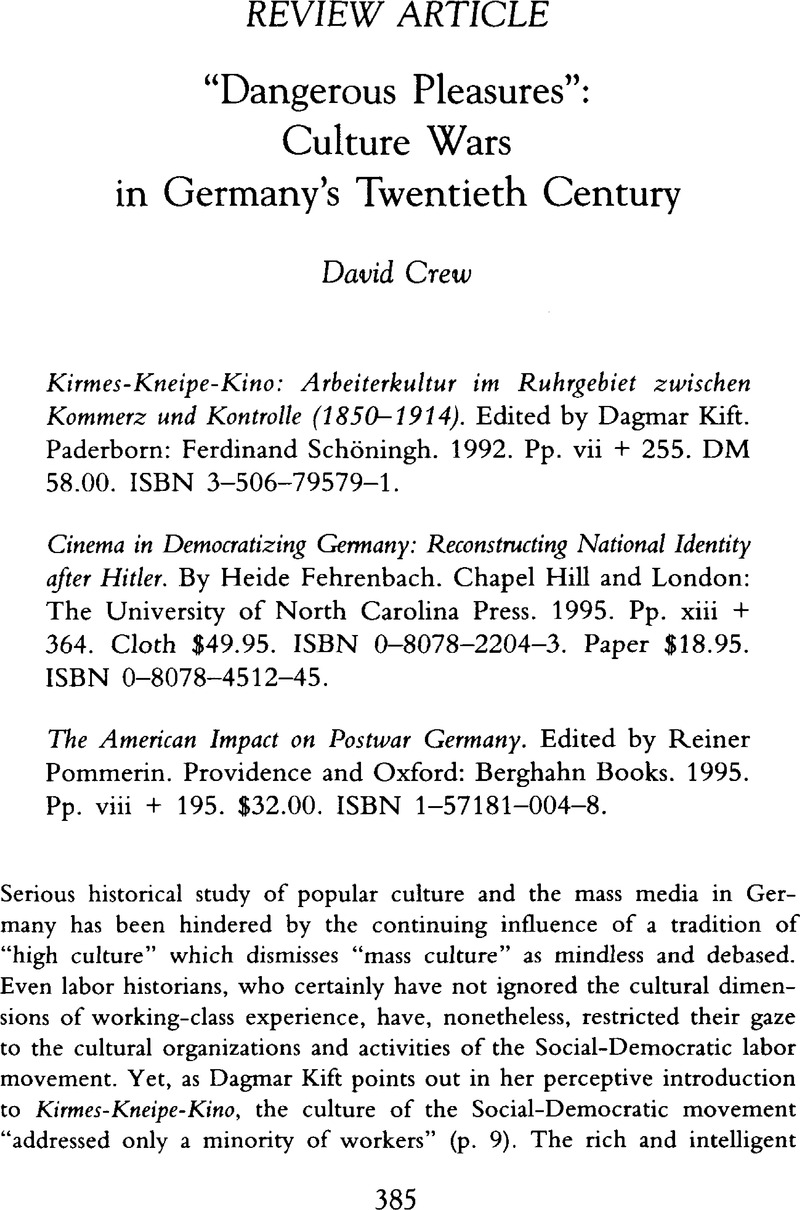No CrossRef data available.
Published online by Cambridge University Press: 16 December 2008

1. See, for example, Williams, Linda, ed., Viewing Positions: Ways of Seeing Film (New Brunswick, N. J., 1994).Google Scholar
2. See, for example, Marssolek, Inge, von Saldern, Adelheid, Münkel, Daniela, Pater, Monika, Schmidt, Uta C., Zuhören und Gehörtwerden: Radiogeschichte und Geschlechterordnung im Dritten Reich und der DDR der fünfziger Jahre. Zwischenbericht. Februar 1995 (Historisches Seminar, Universität Hannover).Google Scholar
3. See for example, Hansen, Miriam, “Early Cinema, Late Cinema: Transformations of the Public Sphere” in Viewing Positions, ed. Williams, , 134–54.Google Scholar On Nazi cultural policy see von Saldern, Adelheid, “Kulturelle Praxisformen im Dritten Reich: Die Geschichstwissenschaft vor neuen Aufgaben” in Kulturaustreibung: Die Einflussnahme auf Kunst und Kultur in Niedersachsen ed. Bergmeier, Hinrich und Katzenberger, Günter (Hamburg, 1994), 10–18.Google Scholar
4. See, especially, Charney, Leo and Schwartz, Vanessa R., editors, Cinema and the Invention of Modern Life (Berkeley, Los Angeles and London, 1995).Google Scholar
5. See Birkefeld, Richard, Jung, Martina, Die Stadt der Lärm und das Licht: Die Veränderung des öffentlichen Raumes durch Motorisierung und Elektrifizierung (Seelze [Velber], 1994).Google Scholar
6. Maase, Kaspar, “Kinder als Fremde—Kinder als Feinde. Halbwüchsige, Massenkultur und Erwachsene im wilhelminischen Kaiserreich,” Historische Anthropologie, Kultur, Gessellschaft, Alltag 4, no. 1, (1996). 93–126.Google Scholar
7. See Hebdige, Dick, Hiding in the Light: On Images and Things (London and New York, 1988), 8.Google Scholar